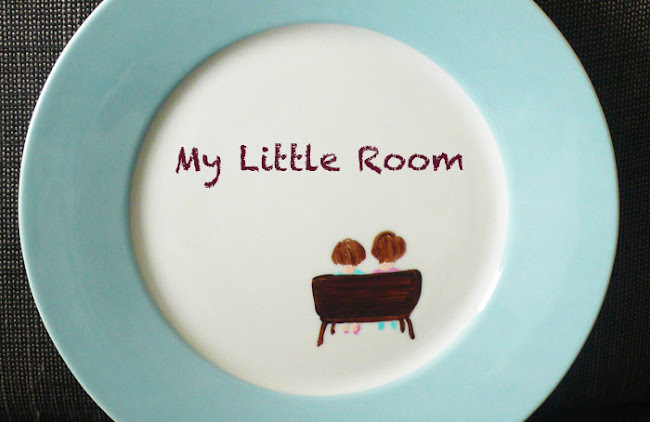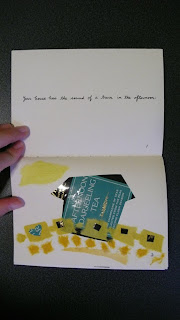I Remember You As You Were in the Last Autumn
I remember you as you were in the last autumn.
You wore the grey beret and the still heart.
In your eyes the flames of the twilight fought on.
And the leaves fell in the water of your soul.
Clasping my arms like a climbing plant
the leaves garnered your voice, that was slow and at peace.
Bonfire of awe in which my thirst was burning.
Sweet blue hyacinth twisted over my soul.
I feel your eyes traveling, and the autumn is far off:
Grey beret, voice of a bird, heart like a house
Towards which my deep longing migrated
And my kisses fell, happy as embers.
Sky from a ship, Field from the hills:
Your memory is made of light, of smoke, of a still pond!
Beyond your eyes, farther on, the evenings were blazing.
Dry autumn leaves revolved in your soul.
我還記得妳去年秋天的樣子
我還記得妳去年秋天的樣子;
妳戴著灰色貝雷帽,神情安詳,
夕照的殘紅在妳的眼底徘徊,
落葉紛紛飄向妳的心海。
緊纏著我的雙臂猶如蔓藤,
樹葉沉澱著妳柔緩的嗓音。
我的渴望在熊熊野火中燃燒,
甜蜜的藍色風信花盤據著我的靈魂。
我感到妳的眼神飄離,秋天已遠去:
灰色的貝雷帽、鳥語呢喃,
妳的心房曾令我悠悠神往,
我的吻落下,如火燼般癡狂。
從船隻上仰望天際,從山頂上眺望大地:
妳的回憶是光、是煙、是沉靜的水塘!
霞光灼射在遙不可見的天際,
秋葉凋零,在妳的心田舞起。
翻譯摘自尤克強先生著『預約一季冬雪』,城邦文化出版,2008
前幾週當我不可自拔地沉迷於聶魯達的詩作之際,偶然發現了這首詩,這是詩人寫給年少時愛戀的對象阿貝蒂娜 (Albertina Rosa Azócar),他們在十六七歲就讀於聖地牙哥師院的法文系時相識,之後聶魯達便展開了長達十多年的愛戀,他為阿貝蒂娜寫下許多情詩、文章和信件,其中包括最有名的「二十首情詩和一首悲歌」,甚至在1927年之後,他去到許多亞洲國家如緬甸、錫蘭、爪哇和新加坡擔任秘密外交特使,他把對阿貝蒂娜的思念寫在明信片、餐巾紙、活頁紙、旅館信紙上,但是內向沉靜的阿貝蒂娜並未回以同等的熱情,於是在1930年,身處異鄉的聶魯達遇見來自荷蘭的瑪莉哈格納 (Mary Antoinette Haagenar),雖然她是冰山美女,也無法分享聶魯達對詩的喜愛,他們在同年12月結婚,阿貝蒂娜對聶魯達婚事的反應沒有任何記載,不過五年之後她也邁入婚姻,嫁給同為詩人的聖塔馬利亞 (Ángel Cruchaga Santamaría)。一直到多年以後,當聶魯達已經成名,並且找到真愛,他對阿貝蒂娜的感情才化為美好的友誼。
About two weeks ago when I was head over heels in love with Neruda’s poetry, I came across this poem. It was written for his object of affection, Albertina Rosa Azócar in his youth. They met when studying French in Santiago's Pedagogical Institute at the age of 16 or 17. Soon the morose and quiet Albertina sparked passionate flames in the young boy. She was his muse for many lyrical texts and poems for more than 10 years. The most famous ones would be
Veinte Poemas de Amor y Une Cancion Desesperada, Twenty Love Poems and a Desperate Song. Even in 1927, after he traveled to countries like Burma, Ceylon, Java and Singapore to work in dark consular positions, he kept writing to Albertina in postcards, hotel letter paper, napkins, loose-leaf pages. She didn’t respond to his love with as much passion. In 1930, he began to form a friendship with Mary Antoinette Haagenar from Holland when transferred to Java. Despite her coldness and lack of interest in poetry, he decided to marry her in December of the same year out of solitude in the remote island. It was not known how Albertina felt about Neruda’s marriage, but she was married to Ángel Cruchaga Santamaría, who was also a poet, five years later. It was many years later when Neruda became well-known and found his true love that he was able to form a serene friendship with Albertina.
聶魯達寫給阿貝蒂娜的情詩和信件一直到聶魯達去世之後,由聖塔馬利亞的姪子偷偷把書信交給出版商,後來經由阿貝蒂娜授權,於1975年公諸於世。
The love poems and letters addressed to Albertina were given by Santamaría’s nephew to the publisher after Neruda’s death. With Albertina’s full authorization, they were published in 1975.
資料來源:尤克強先生著預約一季冬雪,城邦文化出版。Source of information:
http://www.tiempo21.cu/english/Reading/neruda.htm我之所以選了這首詩,因為它並未收藏在我所擁有的聶魯達詩集,我是在偶然中發現的,而且也順便讀到背後的故事和聶魯達的愛情故事之一,不過也因為我最近發現了金莎的新產品-巧莎,吃巧克力的藉口就是把包裝紙拿來當作材料。但是這一週的身心狀況都不是很理想,所以做做停停的,有些圖像連我自己都不是很滿意,例如說,如火燼般落下的吻被我弄成很像黑人牙膏的金牙廣告,我自己也不好意思了。
I chose to work on this poem out of many reasons. It is not in my collection of Neruda’s poetry. I found it in an accidental manner. I got to learn about the story behind it and also one of Neruda’s love stories. Another reason is that I was totally addicted to the new product of Ferrero Rocher, called Ferrero Rondroir (dark chocolate flavor), and my excuse of eating it was that I needed the beautiful shiny red-brown wrapping paper. However, I wasn’t in very good shape mentally and physically this week, so I didn’t really fully concentrate on it. I myself find some of the images rather ridiculous. For example, the image of kisses falling like happy embers was turned into a man with golden lips, more for the ad of toothpaste.
但是沒有回報的愛,還能化成感動人心的文字和作品,真的只有藝術家做得到吧!
Well, I guess only artists are capable of transforming unrequited love into moving words and works!


 可是有一天,她因為工作,面臨了搬家的命運。
可是有一天,她因為工作,面臨了搬家的命運。 新的世界裡,處處都是尖銳的稜角,她覺得自己像個局外人。
新的世界裡,處處都是尖銳的稜角,她覺得自己像個局外人。 她的心下起雨來。
她的心下起雨來。 她想念著他和她。
她想念著他和她。 她想念著他們的空中花園。
她想念著他們的空中花園。 她想念著用愛調製的精力湯。
她想念著用愛調製的精力湯。 於是一顆種子在她的心中萌芽。
於是一顆種子在她的心中萌芽。 她想念巷口的小狗。
她想念巷口的小狗。 她想念下午茶的時光。
她想念下午茶的時光。 她想念早晨的遠足。
她想念早晨的遠足。 可是有一天,她因為工作,面臨了搬家的命運。
可是有一天,她因為工作,面臨了搬家的命運。 新的世界裡,處處都是尖銳的稜角,她覺得自己像個局外人。
新的世界裡,處處都是尖銳的稜角,她覺得自己像個局外人。 她的心下起雨來。
她的心下起雨來。 她想念著他和她。
她想念著他和她。 她想念著他們的空中花園。
她想念著他們的空中花園。 她想念著用愛調製的精力湯。
她想念著用愛調製的精力湯。 於是一顆種子在她的心中萌芽。
於是一顆種子在她的心中萌芽。 她想念巷口的小狗。
她想念巷口的小狗。 她想念下午茶的時光。
她想念下午茶的時光。 她想念早晨的遠足。
她想念早晨的遠足。

















































